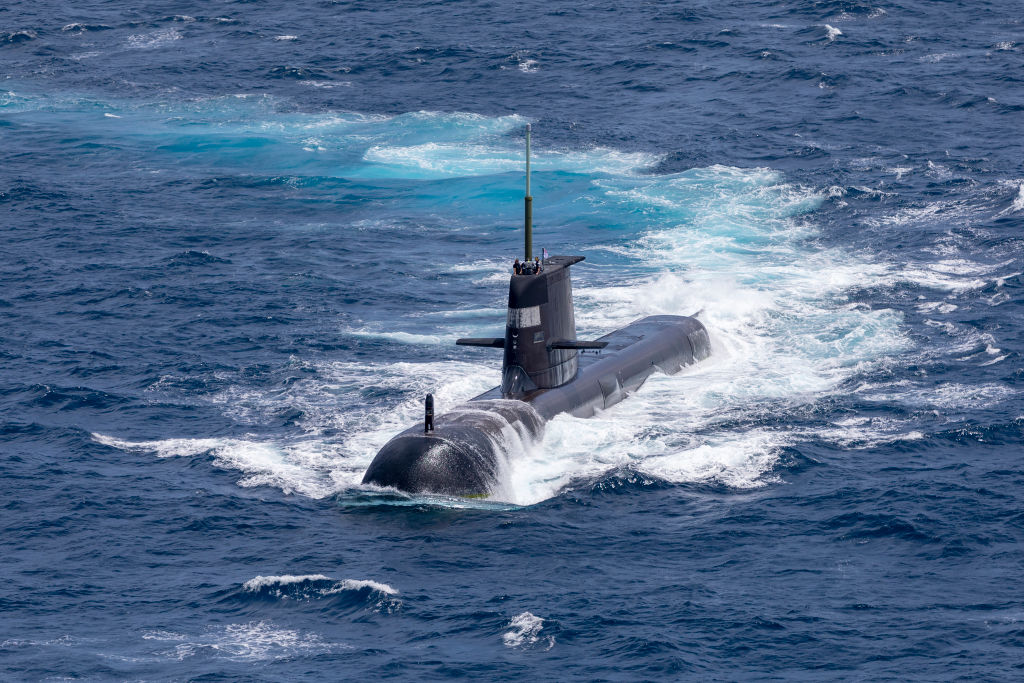Doubts arise on AUKUS nuclear-submarine deal
By KARL WILSON in Sydney | CHINA DAILY | Updated: 2022-10-04 06:54

Doubts have surfaced over the future of a much-vaunted plan for Australia to buy a new fleet of nuclear-powered submarines from the United States and the United Kingdom, a year after the deal was announced.
The multibillion-dollar deal reached in September last year was heralded as a key component of the new strategic partnership of Australia, the UK and the US, known as AUKUS.
But amid some voices saying the deal would break nuclear nonproliferation rules, it is also not clear in Australia whether the nation has the industrial capacity, or the technical expertise, to build the new submarines, and whether Australia can afford to pay for them.
On Sept 26, Peter Malinauskas, the premier of South Australia state, told journalists the federal government had reassured him the submarines will be built in his state.
Since the deal was announced, two of the three leaders of the countries involved - Britain's Boris Johnson and Australia's Scott Morrison - have been replaced as prime minister.
With a price tag of more than A$190 billion ($122.4 billion) for eight nuclear submarines, some have questioned whether the deal will be carried out amid the current economic climate.
The agreement also angered France, which had an A$90 billion deal with Australia to build a new fleet of conventional submarines to replace Australia's six aging, diesel-powered Collins-class vessels. The Australian government is expected to pay French shipbuilder Naval Group $538 million in compensation for abandoning the deal.
Former South Australian senator and submariner Rex Patrick said, "The US engage in operations all around the world and they're important operations, and the US Navy is not going to cede a capability so that Australia can get submarines (so they can) dip their toe in the water."
In addition, the US reportedly might have trouble meeting its own building program for nuclear submarines.
This issue was highlighted on Sept 1 when Rear Admiral Scott Pappano, the executive officer for the US strategic submarines program, was asked about the US shipbuilding workforce and the implications of the partnership with Australia.
Pappano said that the plan could hamper his nation's own nuclear submarine program, as well as that of the United Kingdom.
"If we were going to add additional submarine construction to our industrial base, that would be detrimental to us right now," he said.
Another problem is that the nuclear technology used by the US is highly secretive, and some doubt that the US Congress would agree to allow the technology transfer, even to a close ally like Australia.
It has also been questioned whether the UK could provide Australia with a nuclear-powered submarine, as it is only building seven Astute-class subs before it moves to a new model.
"A year on, it is hard to think of a major defense or foreign policy initiative in living memory with such a stark divergence between what the public knows and what the government and its officials know," said Sam Roggeveen, director of the International Security Program at the Lowy Institute, an Australia-based think tank.
Writing in the institute's online magazine The Interpreter, he said: "Australians deserve to hear the detail. And more importantly, Australians need to hear from their government about how these submarines fit the nation's military strategy and identity.
"Australia has always been a loyal US ally, but it has never before placed itself at the forefront of US planning for a confrontation with a superpower. And it has never before gone so dramatically on the offensive in its weapons acquisition, buying a weapon expressly designed to hem in China's Navy."
Roggeveen added, "This is a question not just of military strategy but of how Australia defines itself as an international actor, and as a nation."
In July, two Chinese academic entities released a report saying that the deal has set a "dangerous precedent" for the illegal transfer of weapons-grade nuclear materials and thus constitutes a blatant act of nuclear proliferation.
The report was released by the China Arms Control and Disarmament Association and the China Institute of Nuclear Industry Strategy.
The report said the AUKUS nuclear-powered submarine collaboration runs counter to the spirit of the South Pacific Nuclear Free Zone Treaty and also undermines efforts by the Association of Southeast Asian Nations to establish a zone free of nuclear weapons.
"The United States and Britain are directly giving Australia tons of weapons-grade nuclear materials. This is without a doubt an act of nuclear proliferation," said Zhang Yan, president of the China Arms Control and Disarmament Association.
























